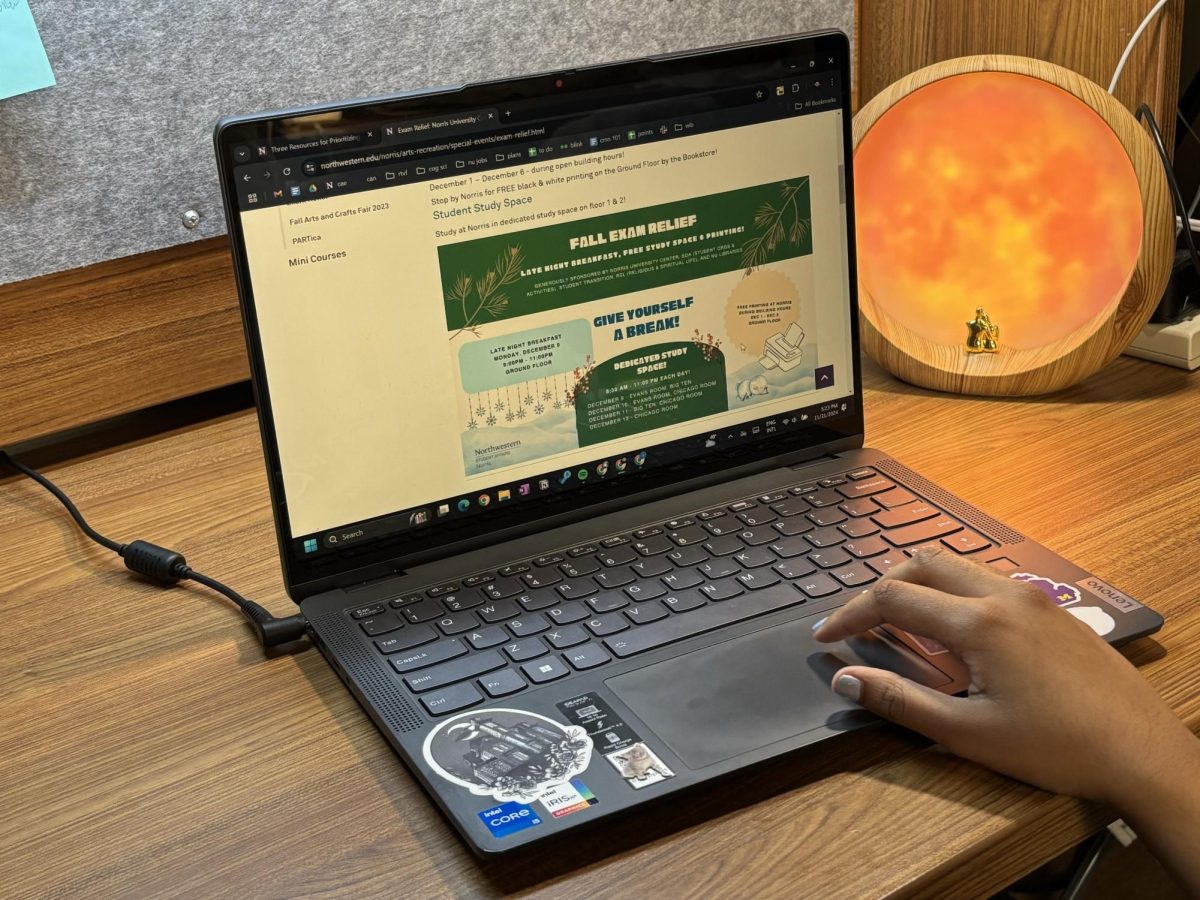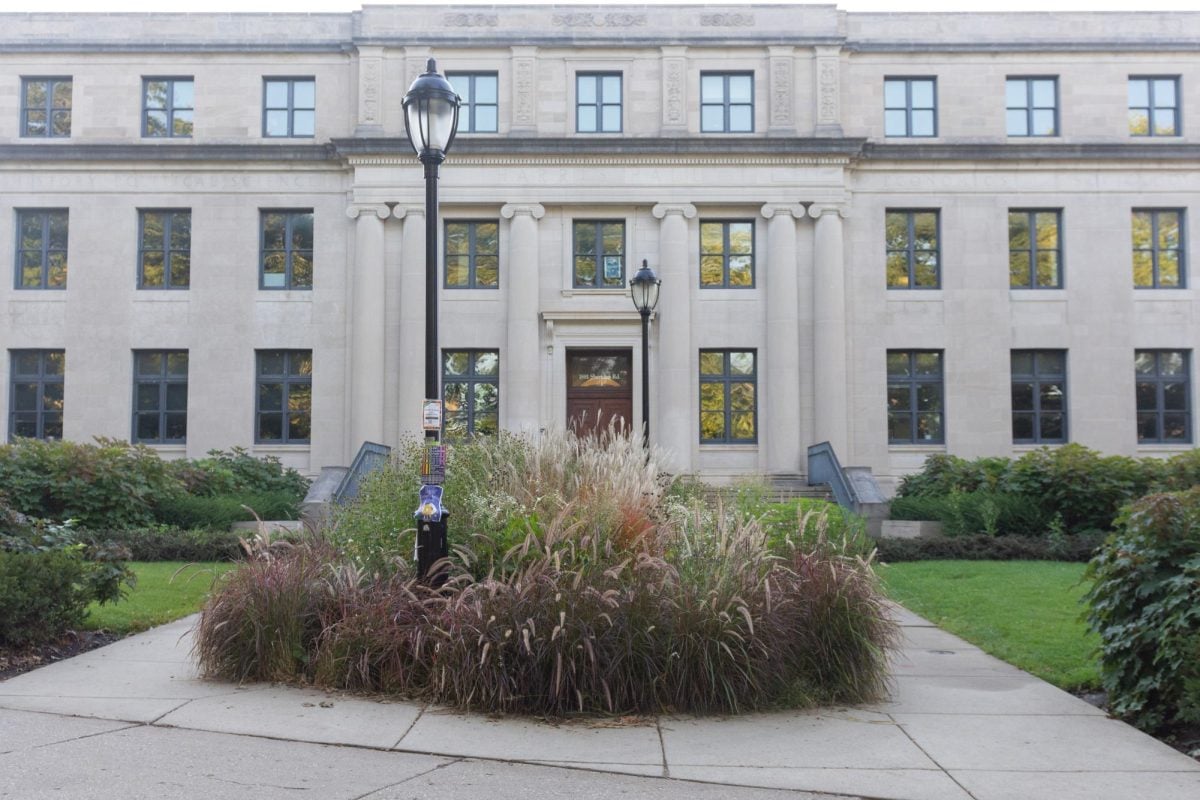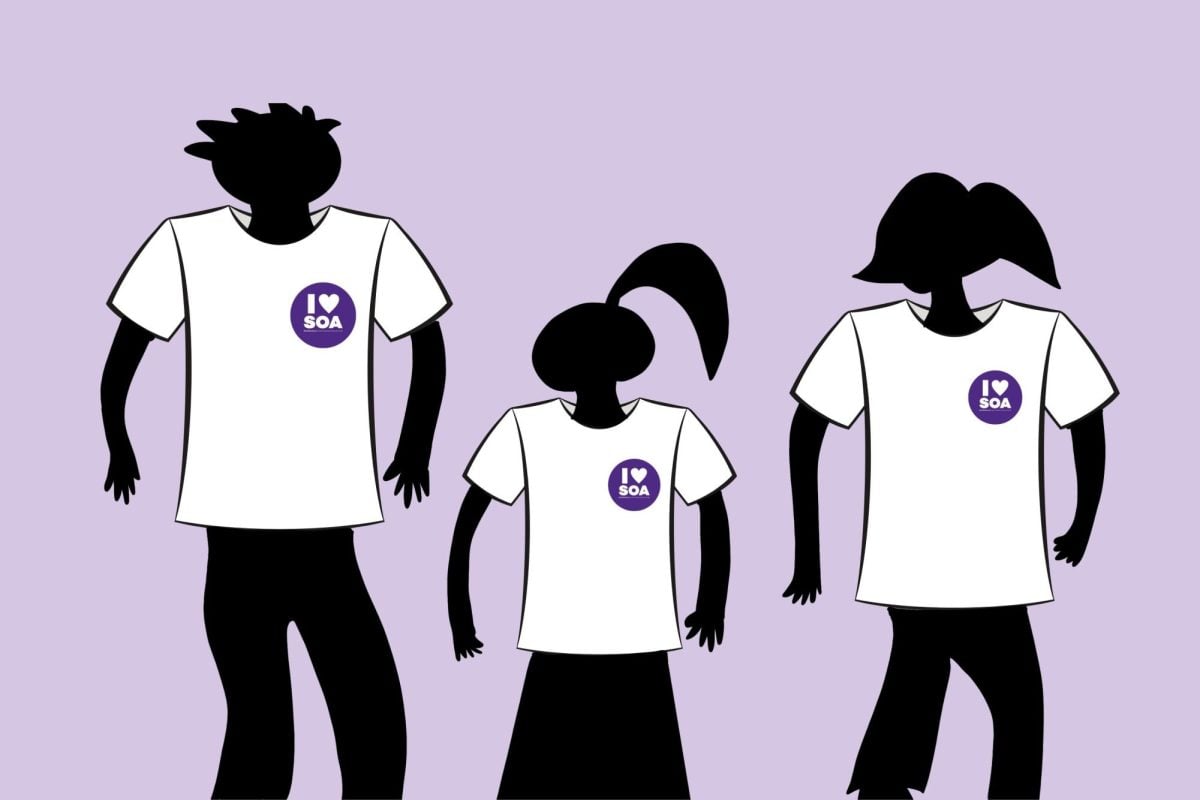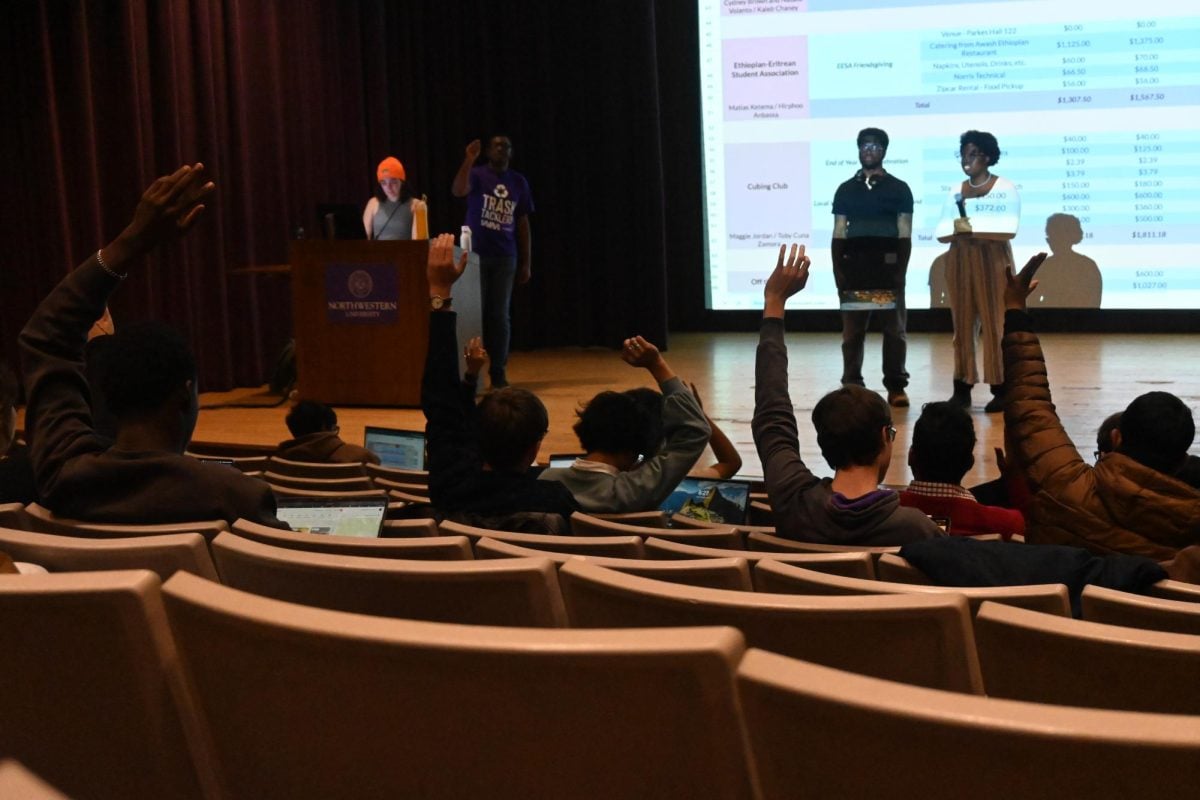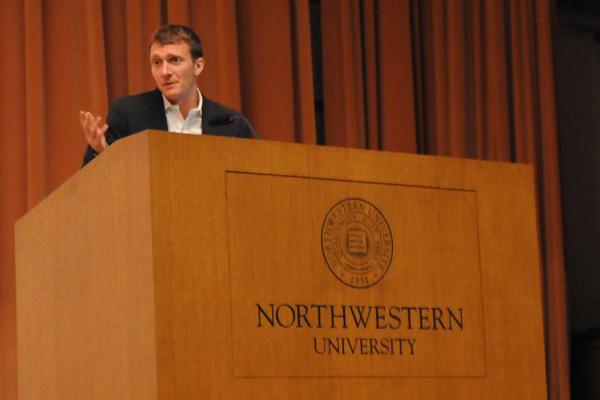
Damon Horowitz, Google’s in-house philosopher and director of engineering, began his talk Tuesday night by telling the audience everyone should learn how to program a computer.
“In my view, digital technology is an invention of roughly the same importance as fire or the invention of writing,” Horowitz said.
He spoke to an audience of about 250 in Ryan Auditorium as part of the Contemporary Thought Speaker Series. The event, which started in the 1920s but was brought back last academic year, brings in speakers to ask the big questions concerning higher education. Horowitz spoke on the relationship between technology and the humanities as colleges shift toward more online education.
Horowitz got his undergraduate degree in computer science at Columbia University and created a few startup companies before he went to Stanford University 10 years later for a doctorate in philosophy. As universities such as Northwestern begin to offer online courses, the question of where humanities fit into technology becomes significant.
“The very idea of quantifiable achievement is antithetical to much of the work we do in the humanities,” Horowitz said. “We must be careful when we evaluate the humanities.”
NU’s committee of 17 faculty, administrators and students put together this specific talk in connection with the philosophy department and the McCormick School of Engineering and Applied Science.
Horowitz spoke of a technological worldview, which he said is a concept that attempts to reduce life’s messiness in a mathematical way. The use of this view has been a “perennial drive” that was present before modern technology. This technological view of the world attempts to simplify language and values, which he argued can’t be broken down through one mode.
“If we only look at the world through the lens of technology, there’s much that we’re missing out on,” he said. “Including much of what gives language its meaning.”
If anything, he said, humans are adapting their language to technology via social media. Through abbreviations and shortened speech, humans have “phatic conversations” using idle language.
During the talk, Horowitz cited other philosophers’ ideas on the issue of decreased meaning in language and values through technology. He referenced philosopher Stanley Cavell’s comparison of a misused word to the misuse of a kitchen knife.
“Sure, you could cut a steak with a butter knife if you wanted to,” Horowitz said. “But in so doing, you’re missing something about what that knife does best. … My concern is what we’re missing out on when we use language only in its technological mode.”
Ellie Graham, chairwoman of the series’ steering committee, said the group was introduced to Horowitz by listening to his TED talks.
“We saw him as kind of the perfect representation of what we thought the University should be about,” the Weinberg senior said. “Which is the bringing together of different disciplines, especially those you would not necessarily put together.”
Weinberg sophomore Jeremy Gaines went to Horowitz’s talk after he attended and enjoyed last year’s event.
“He reinforced my view, which is that there’s so much,” he said. “There’s a lot beyond data that’s going to be important — philosophical questions will be important.”
Horowitz was the second of three speakers in the series. The final event in the series will be held May 6 with writer George Saunders.









